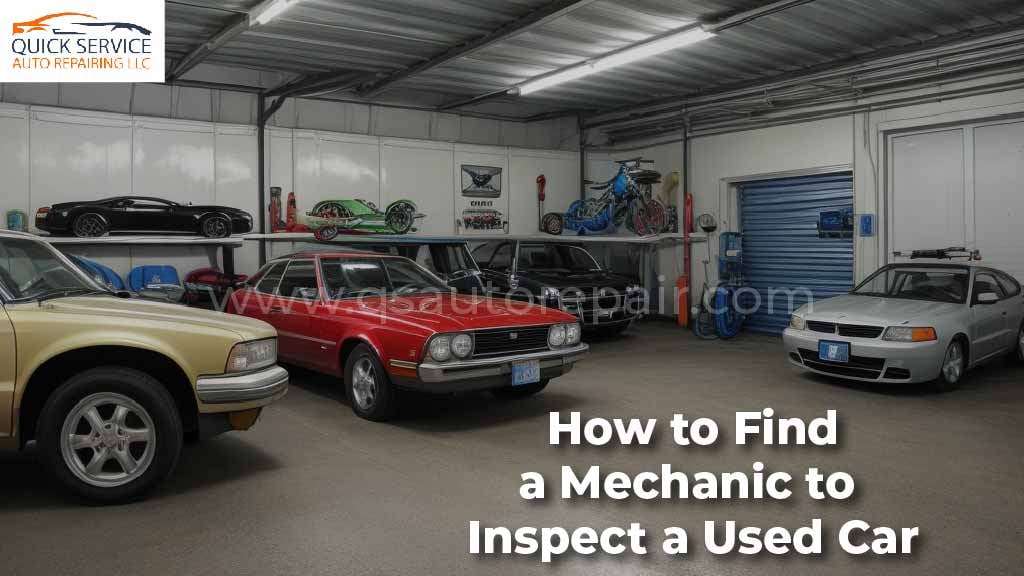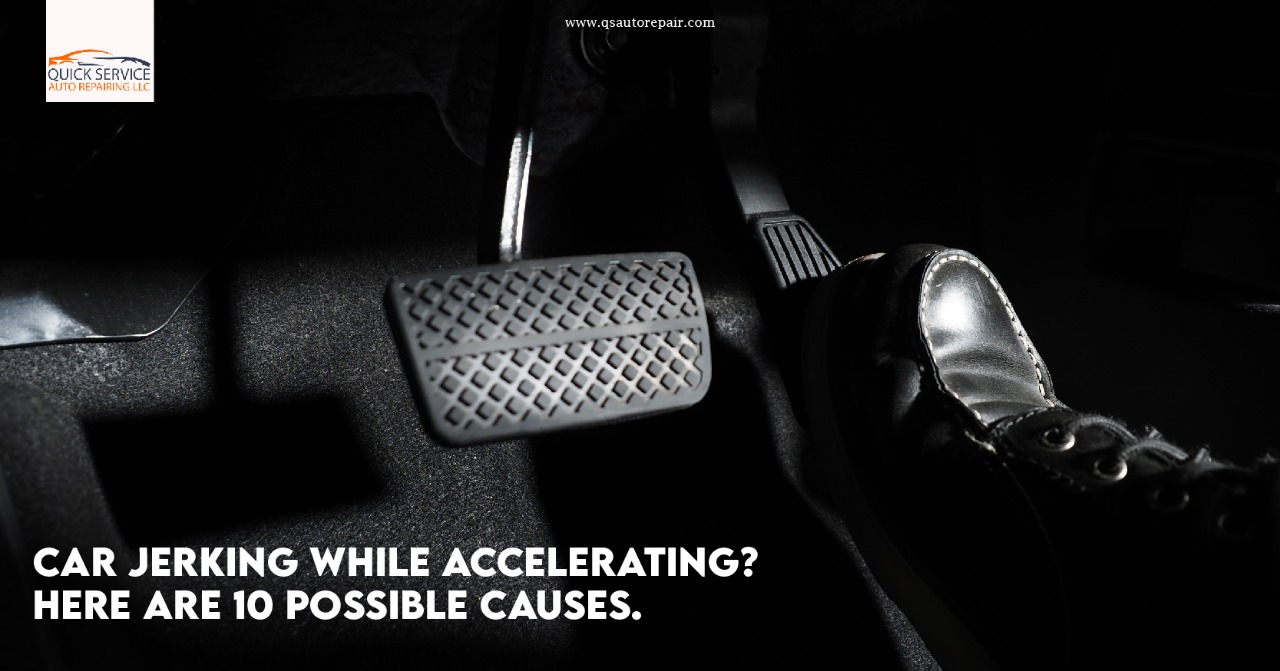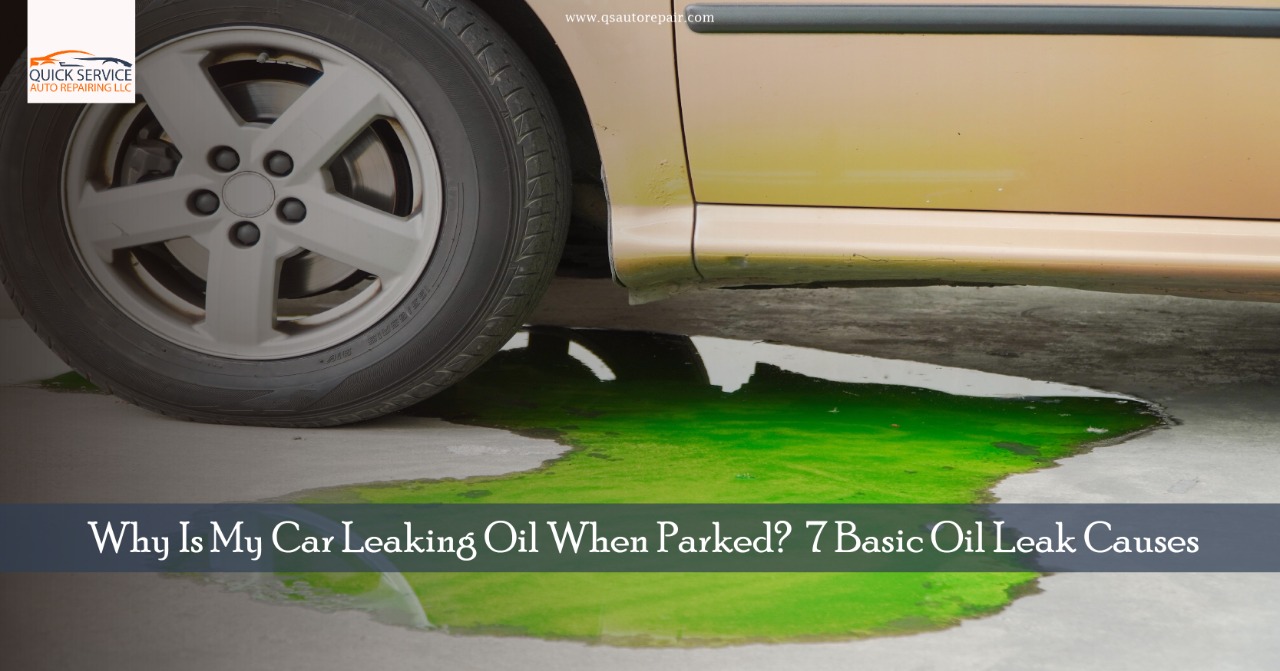We Are Open 7 Days a Week
Fri to Thu 08:00 AM - 10:00 PM
How to Find a Mechanic to Inspect a Used Car: Comprehensive Guide

Why Is a Pre-Purchase Inspection or Mechanic Inspection Important?
Before we dive into the steps, let’s understand why a pre-purchase inspection is vital. A used car may look good on the outside, but there could be hidden issues that only an experienced mechanic can uncover. Here are some reasons why you should never skip this step:
1. Unveiling Hidden Problems
A skilled mechanic can identify potential problems that the seller might not disclose. This includes issues with the engine, transmission, suspension, and more.
2. Negotiation Power
If the inspection reveals issues, you can use this information to negotiate a lower price with the seller or ask them to fix the problems before purchasing.
3. Peace of Mind
Knowing the car’s condition gives you peace of mind and helps you avoid unexpected breakdowns or costly repairs shortly after buying it.
Best Practices of how to find a Mechanic to Inspect a Used Car
Research Local Mechanics
When researching local mechanics, consider factors beyond their proximity to your location. Look for mechanics specializing in used car inspection, as they will likely have the expertise to identify issues common to older vehicles. Additionally, consider mechanics with a reputation for reliability, transparency, and excellent customer service. Reading online reviews and asking for recommendations can provide valuable insights into a mechanic’s reputation.
Ask for Recommendations
Personal recommendations are often invaluable when searching for a mechanic. Friends, family members, and coworkers who have recently purchased used cars can share their experiences with mechanics they trust. These firsthand accounts can help you narrow down your list of potential candidates.
Check Qualifications and Certifications
Mechanics who possess certifications, such as ASE certification, have demonstrated their commitment to maintaining high industry standards. These certifications indicate a certain level of competence and professionalism. When choosing a mechanic, inquire about their qualifications and whether they have undergone specialized training in inspecting used cars.
Visit the Mechanic’s Workshop
A visit to the mechanic’s workshop can provide valuable insights into their operation. Keep an eye out for the workspace’s structure and cleanliness. A well-maintained and organized workshop often reflects a mechanic’s attention to detail and professionalism. It also suggests they will likely treat your car carefully during the inspection.
Inquire About Inspection Procedures
A reputable mechanic should be willing to explain their inspection procedures in detail. They should have a structured inspection checklist that covers all essential aspects of a vehicle, including the engine, transmission, brakes, suspension, and safety features. Understanding their process will help you gauge the thoroughness of their inspections.
Discuss fees
While cost should not be the sole determining factor, it’s essential to understand the inspection fees clearly. Request a breakdown of the costs and compare them with other mechanics on your list. Remember that a slightly higher price may be justified if the mechanic offers a more comprehensive inspection.
Request a Sample Inspection Report
Reviewing a sample inspection report can give you a glimpse of the level of detail you can expect. A well-structured information should include photographs, descriptions of issues, and recommendations for repairs or maintenance. This report will serve as a valuable reference when making your final decision about the car.
Review Online Reviews and Ratings
In the digital age, online reviews and ratings provide a wealth of information about a mechanic’s reputation. Pay attention to patterns in reviews. Multiple positive reviews mentioning the same strengths can indicate a trustworthy mechanic. Conversely, be cautious if you notice consistent negative feedback.
Consider Specialization
Think about whether the mechanic knows a lot about the kind of car you want to buy. When a mechanic specializes in certain vehicles, it helps them find problems unique to those cars, which a regular mechanic might miss.
Ask About Warranty and Liability
Inquire about any warranty or liability coverage offered by the mechanic. A warranty can provide additional protection if issues arise after the inspection. Understanding the extent of their liability can help you make an informed decision about their services.
Schedule the Inspection
Once you’ve chosen a mechanic, schedule the inspection at a time that works for you and the mechanic. Try to arrange it before finalizing the purchase to ensure you have all the information you need to make an informed decision.
Accompany the Mechanic
Being present during the inspection is highly recommended. It allows you to observe the process, ask questions, and better understand the car’s condition. A mechanic who encourages your presence during the inspection is typically more transparent and trustworthy.
Review the Inspection Report
After the vehicle inspection is complete, take the time to review the inspection report thoroughly. Pay close attention to any red flags or critical issues. Use the report as a basis for negotiation or a guide for future maintenance and repairs.
Negotiate Based on Findings
Depending on the inspection findings, the buyer may need to negotiate with the seller. If significant issues are identified, you can ask the seller to address these issues before the sale or use the information to negotiate a lower price that reflects the necessary repairs.
Understand Inspection Limitations
While a mechanic inspection is a crucial step in the used car buying process, it’s essential to recognize its limitations. Mechanics can only evaluate the car’s condition at the time of inspection. They may be unable to predict future issues or hidden defects that may arise later. Therefore, regular maintenance and watching for any unusual signs or symptoms after the purchase is wise.
Don’t Rush the Process
Patience is vital when looking for the right mechanic and conducting an inspection service. Rushing through these steps may lead to overlooking potential issues. Take your time to research, schedule appointments, and thoroughly review the inspection report before finalizing your decision.
Keep Records
Throughout the process, maintain detailed records of your interactions with mechanics, inspection reports, and any communication with the seller. These records can be invaluable should any disputes or issues arise after the purchase.
Trust Your Gut
Sometimes, your instincts can be a valuable guide. If something doesn’t feel right about a mechanic or the car you’re considering. Trusting your intuition can help you avoid potential pitfalls.
Post-Purchase Maintenance
Once you’ve bought a used car, taking good care of it is essential. The first check-up tells you how it’s doing, but you must keep looking after it to ensure it stays in good shape and lasts a long time.
Vehicle History Reports
In addition to a mechanic inspection, consider obtaining a vehicle history report for the used car you’re interested in. These reports provide information about the car’s ownership, accidents, and title history. A clean vehicle history report can provide additional confidence in your purchase.
Professional Organizations
Some mechanics are members of professional organizations or associations related to automotive repair. Membership in these groups can indicate a commitment to industry standards and ongoing education. It’s worth asking if your chosen mechanic is affiliated with such organizations.
Be Prepared for Minor Issues
No used car is perfect, and minor issues may arise even with a thorough inspection. It’s essential to be prepared for these and have a plan to address them. Whether it’s minor repairs, maintenance, or cosmetic improvements, knowing what to expect can help you budget accordingly.
Extended Warranty Consideration
If you’re purchasing a used car that’s relatively new and has low mileage, you may want to explore the possibility of an extended warranty. Some dealerships and third-party providers offer extended warranties that can provide additional coverage for unexpected repairs.
Document Everything
Throughout the entire process, document every step and every piece of information related to the inspection and purchase. This includes receipts, contracts, correspondence, and independent inspection reports. A paper trail can be beneficial if any disputes or issues arise.
Conclusion
Finding the right mechanic to inspect a used car before buying is essential for making an informed purchase decision. By following these steps and conducting thorough research, you can ensure that your investment in a used vehicle is wise. Don’t skip the inspection step—it can save you from headaches.
FAQs
1. How much does a mechanic inspection for a used car cost?
The cost of a mechanic inspection varies depending on the mechanic’s location and expertise. It often falls between $100 and $200.
2. How long does a mechanic inspection take?
The duration of an inspection can vary, but it typically takes one to two hours to thoroughly examine a used car.
3. Can I use the inspection report to negotiate the price?
You can use the inspection report to negotiate the price with the seller. If significant issues are found, you may request that the seller address them or reduce the selling price accordingly.
4. What should I bring with me to the inspection?
Bring a copy of the car’s listing, any maintenance records, and a list of questions you have for the mechanic.
5. Is it worth getting a mechanic inspection for a certified pre-owned (CPO) car?
Even though CPO cars undergo rigorous inspections by the dealership, it’s still advisable to have an independent mechanic inspect the vehicle to ensure there are no surprises.









